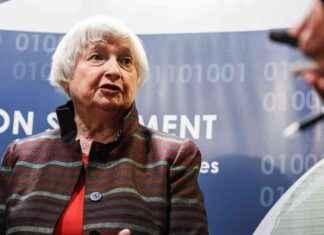It defends a “solid and flexible” energy transition and that regulation takes into consideration industrial and technological autonomy
BILBAO, 20 Mar. (EUROPA PRESS) –
The president of AEE, Juan Diego Díaz, has highlighted Spain’s strength in the wind sector but has warned that the processing of projects is “the subject to improve” and has added that their social acceptance is “a priority “.
Díaz made this reflection at the opening ceremony of WindEurope that opened its doors this Wednesday at the BEC in Barakaldo, the main event for the European wind sector that will bring together more than 12,000 visitors until Friday.
The inaugural session was also attended by the Third Vice President of the Government and Minister for the Ecological Transition and the Demographic Challenge, Teresa Ribera, the Minister of Economic Development, Sustainability and the Environment of the Basque Government, Arantxa Tapia, the General Director for Strategic Planning and European Integration, Ministry of Energy of Ukraine, Roman Andarak, or the CEO of WindEurope, Giles Dickson, among others,
Juan Diego Díaz has expressed his satisfaction at holding the largest international meeting of the wind sector in Bilbao for the third time, an event that represents “an opportunity to give visibility and recognition” to this industry and show the capabilities of its companies.
The president of AEE wanted to convey “good news” to the attendees and highlighted that in Spain the average price of electricity “maintains a downward trend thanks to wind power.” “The competitiveness of our industry depends largely on the price of electricity, and this trend also has a direct impact on homes. We are facing a key period to lay the foundations for the country’s energy future,” he remarked.
Juan Diego Díaz recalled that Spain was one of the pioneer countries in Europe in the commitment to onshore wind and continues to be part of the club of the “top FIVE global wind power by installed power”. He has highlighted that only four countries in the world have more wind megawatts installed – Germany, China, the United States and India – and Spain is currently the fifth largest exporter of wind turbines in the world.
“This privileged position is not free. The commitment, effort, experience and competitiveness of the more than 40,000 professionals have been the perfect formula to be a leading sector in the deployment of wind technology and the energy transition.”
The president of the Wind Business Association has highlighted that 2023 has been “a record year”, in which renewable energies have represented more than 50% of the Spanish mix, and has pointed out that wind energy is already the first technology in the mix. energy with more than 30 GW installed in the country.
“I said that I had good news and one of them is the imminent development of offshore wind on our coasts. The wind sector is confident that 2024 will be the year of deployment of floating offshore,” he said.
Juan Diego Díaz has assured that the configuration of the Spanish coast makes them bet “decisively on floating wind power, a technology in which Spain is a world leader.”
Likewise, he indicated that, along with this “great opportunity”, they have “other great challenges ahead” and “none impossible to achieve.” First of all, he has cited the increase in electricity demand.
As he stated, working on electrification policies is probably one of the “most important” tasks they face as a sector. “This first challenge, I am afraid, does not depend only on the sector; it is necessary to involve sectors such as automobiles, buildings and industry, and implement policies that facilitate the energy transition to more sustainable consumption. Electrification is the way more effective to accelerate the decarbonization process,” he assured.
In his opinion, distribution networks are “a key element” in this electrification process. In this sense, he has defended that investment in networks must increase “to adapt them to new needs.”
Juan Diego Díaz has stated that the energy transition must be “solid and flexible”, with an “intelligent” transformation that will require all available technologies in order to ensure a more sustainable energy supply.
The head of AEE added that the electricity grid must ensure the “balance” between renewable energy production and demand as renewable projects grow in Spain.
Juan Diego Díaz has pointed out that one of the most heard words in these next three days will be “permitting” because the administrative processing of wind projects is “the subject to be improved by companies, administrations, territories and their citizens.” . “We must increase the current pace and we must do so in a stable, predictable and long-term way,” he said.
Likewise, he has assured that the social acceptance of the projects is “a priority” and has defended that “working rigorously, with sensitivity to people’s reality, and providing early information about the projects is key to guaranteeing a healthy process for everyone.” the actors involved”. “Establish dialogues without leaving anyone behind and learn from good practices,” she said.
Juan Diego Díaz has added that Spain is an international benchmark because it is one of the “few countries” with 100% of the wind energy value chain. “Regulation, planning, procedures and, ultimately, the approach to actions aimed at advancing the energy transition must take into consideration industrial and technological autonomy as one of its fundamental pillars. We are facing a period of necessary industrial defense and technological in Europe”, he stressed.
After highlighting that this Wednesday the Spanish Wind Charter will be signed, “the commitment of the Government and the sector to move forward, he has underlined that there are “great challenges and opportunities in a consolidated sector with a long-term vocation.”







